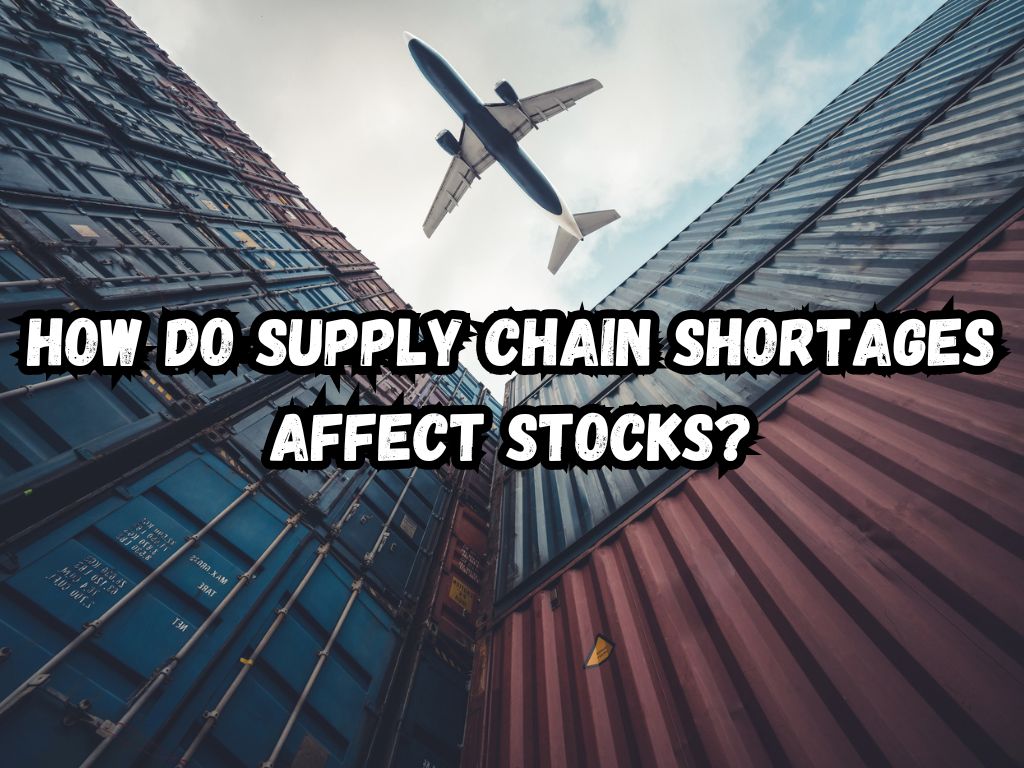In the world of global commerce, supply chains play a vital role. These intricate networks enable the movement of goods and services from the manufacturer to the end user. But how do supply chain shortages affect stocks?
The impact can be quite severe, particularly on the stock market. This article sets out to explore this relationship in detail, providing a clear understanding of how supply chain shortages affect stocks.
How Do Supply Chain Shortages Affect Stocks?
Substantially, supply chain shortages mean a lack of necessary resources to maintain production. Whether it involves raw materials or intermediate goods, when supplies dwindle, it can create a domino effect.
This ripple can extend across numerous industries, affecting global markets along the way. Common triggers of supply chain shortages include natural disasters, ongoing pandemics, geopolitical tensions, and production issues.
For example, a hurricane in a crucial geographic location can halt production, causing shortages. Similarly, pandemics can disrupt production processes, causing demand and supply imbalances and ripple effects that touch businesses and consumers globally.

The Immediate Impact on Stocks
When supply chain disruptions occur, different sectors feel the effects in distinct ways. For instance, the technology sector might grapple with semiconductor shortages, while the automotive industry may face a scarcity of crucial parts.
These shortages can lead to halted production lines, leading to financial losses, and, ultimately, impacting the stock prices of these companies.
A notable example of this is the effect of the global chip shortage on tech companies. As production stagnated, tech stocks faced significant volatility, highlighting the direct impact of supply chain issues on market dynamics.
Supply chain disruptions can also strain a company’s financial performance, leading to decreased revenue due to halted production. Increased costs to secure harder-to-find materials can squeeze profit margins.
In the stock market, these changes can lead to recalibrated valuations, often resulting in falling stock prices.
Moreover, supply chain issues can also stir the waters of investor sentiment. Investors, wary of the potential negative impact on a company’s bottom line, may decide to sell off their shares. This tendency further drives down the stock price.
Long-term Effects on the Market
Even when supply chain disruptions resolve, their impact’s ripple effects may continue to affect the stock market in various ways. Firstly, organizations might undertake adaptation strategies or innovation to skirt similar issues in the future.
These efforts might include securing alternative supply sources or leveraging technology to streamline and diversify their supply chains.
While this might cost them in the short term, company stocks often rise as a result of these improvements, showcasing resilience that attracts investors. On a broader scale, continued supply chain disruptions may trigger shifts in investment strategies.
Rather than focusing on short-term gains, investors might instead pivot towards stocks from sectors less impacted by supply chain shortages. This shift augments both portfolio diversification and resilience against such shocks.
Strategies for Investors
For investors, the first line of defense against supply chain disruptions is diversification. A well-diversified portfolio offers resilience to the impacts of supply chain shortages.
If one asset class performs poorly due to a supply issue, another asset that isn’t as affected might compensate. Additionally, staying informed about potential supply chain risks in specific industries or companies is crucial.
Investors can then reassess these variables to make well-informed investment decisions. Having insight into a company’s supply chain management can provide valuable information about its potential vulnerability to supply chain disruptions.
Finally, adopting a long-term perspective while investing can effectively shield against momentary market fluctuations due to supply chain disruptions. Stocks have historically proven to be resilient assets over the long run, evening out short-term market volatility.

Frequently Asked Questions
What sectors are most vulnerable to supply chain shortages?
Industries relying heavily on specific raw materials like technology, automotive, and pharmaceuticals can be quite vulnerable to supply chain disruptions.
How can investors mitigate risks associated with supply chain disruptions?
Investors can mitigate such risks by diversifying their portfolios, staying informed about possible supply chain risks, and adopting long-term investment perspectives.
Are supply chain shortages likely to become more common in the future?
With complex global production chains and increasing geopolitical tensions, supply chain disruptions could indeed become more common.
How do supply chain shortages affect small and large companies differently?
While smaller firms may struggle to survive severe supply chain disruptions, larger companies usually have more financial leeway to innovate or adapt.
Can technological advancements significantly mitigate the impact of supply chain shortages on stocks?
Yes, digital technologies can streamline supply chains, enhance transparency, improve predictability, and make these chains more resilient to disruptions.
Conclusion
Supply chain shortages can indeed have profound impacts on stocks, affecting not only individual companies but the market as a whole.
However, with careful planning, risk management, and strategic investing, these impacts can be mitigated, safeguarding investment portfolios against potential headwinds.


 Tags:
Tags:










